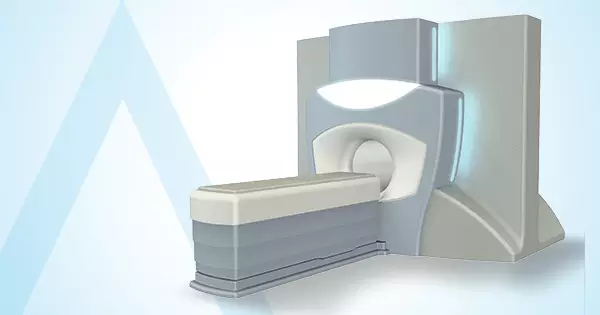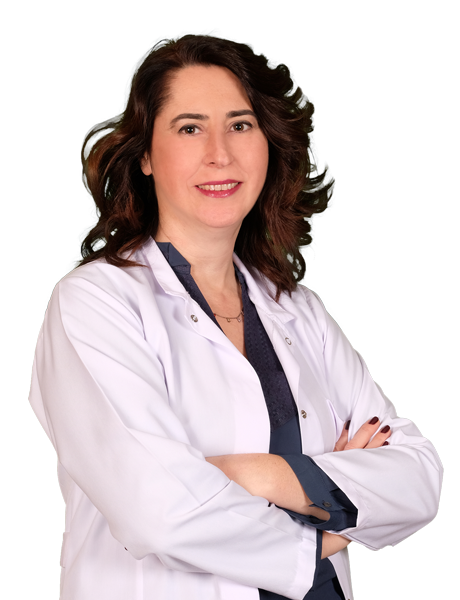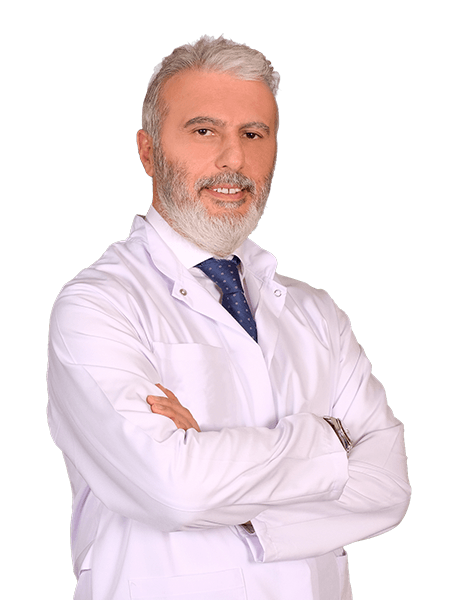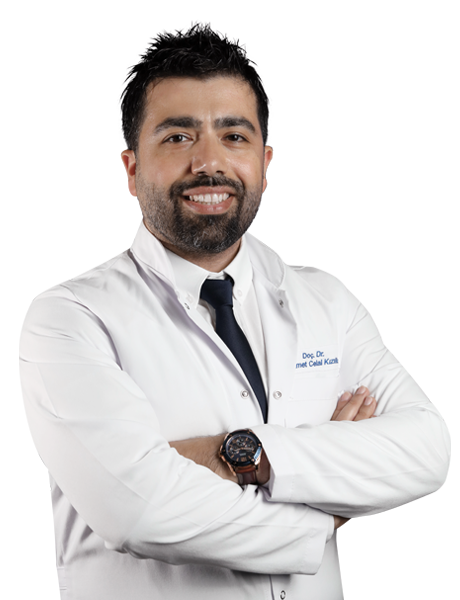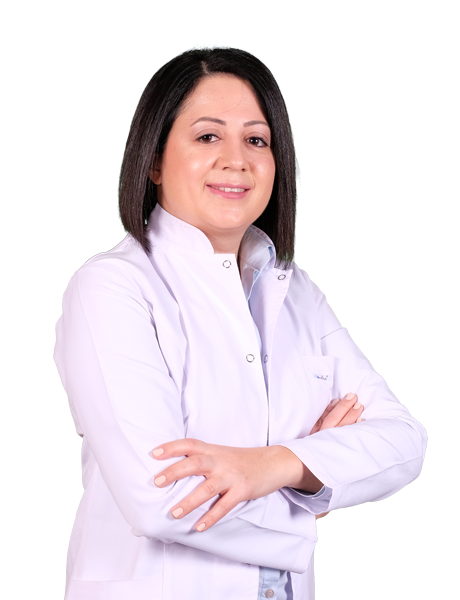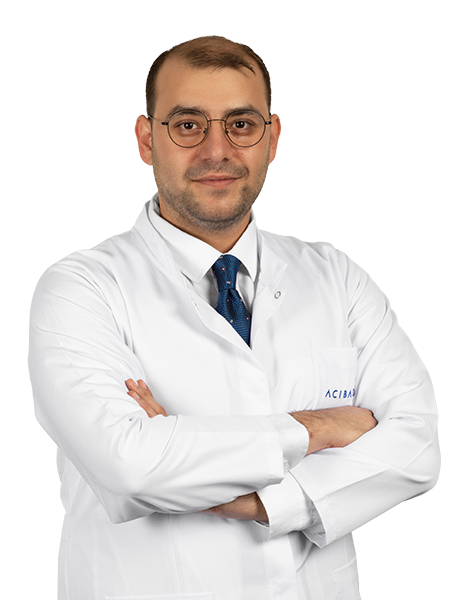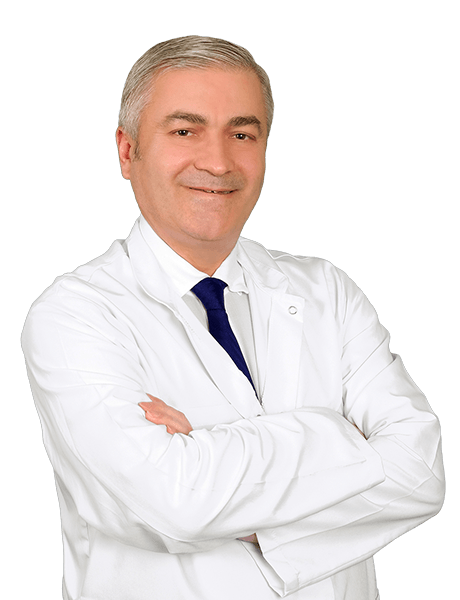Gastrointestinal Oncology
Gastrointestinal Medical Oncology is the study of cancers of the digestive system. These include tumors of the esophagus, stomach, small intestine, gallbladder, biliary tract, pancreas, liver, colon and anus. In addition, although rarely observed, tumor types such as melanoma, neuroendocrine tumor, gastrointestinal stromal tumor, sarcomas are also diagnosed and treated by the Gastrointestinal Medical Oncology department. Recently, gastrointestinal cancers have become a major health problem worldwide.
The most common types of cancer are colorectal cancers, esophageal cancers and pancreatic cancers. Colorectal cancers occupy a prominent place among cancers of the digestive system.
In particular, early diagnosis, treatment and subsequent patient care increase success in the fight against digestive system cancers.
What is the Gastrointestinal System?
The gastrointestinal system is one of the major structures that fulfills the digestive function in the body. It covers the digestive system starting from the mouth, through the esophagus, stomach, small intestine, large intestine and anus.
The digestive system is responsible for digesting, absorbing and excreting the food taken orally. Enzymes (acids and intestinal flora) in the digestive system break down and absorb nutrients.
What is the Gastrointestinal Oncology?
Gastrointestinal oncology (cancers of the digestive system) deals with the formation, diagnosis and treatment of tumors of the esophagus, stomach, small intestine, gallbladder, biliary tract, pancreas, liver, large intestine and anus.
Gastrointestinal Medical Oncology offers a multidisciplinary approach in the diagnosis, treatment and follow-up of digestive system cancers. Today, thanks to rapidly developing medical technology and medical innovations, significant advances have been achieved in the diagnosis and treatment of gastrointestinal cancers.
Cancers of the digestive tract can develop anywhere between the stomach and the intestinal canal, from the esophagus down to the anus. Most cancers that start in the digestive tract, including cancers of the esophagus, stomach, colon and rectum, start in the gland cells lining the gastrointestinal tract. The types of cancer that develop in the cells in these mucous areas are called adenocarcinomas.
What are the Types of Gastrointestinal Cancer?
Gastrointestinal cancers can occur in various parts of the digestive system (mucous areas). They develop in organs such as the intestines, stomach, liver, pancreas and rectum and can often be asymptomatic. Stomach cancer occurs in the cells of the gastric mucosa and the upper part of the digestive tract. Liver cancer is characterized by an abnormal increase in liver cells. Pancreatic cancer is one of the most difficult types of cancer to diagnose. This type of cancer, which affects the pancreas, can be difficult to diagnose in its early stages. Rectal cancers occur in the last part of the large intestine and are also among the most difficult types of cancer to diagnose.
Some symptoms in the digestive system are not always associated with cancer. Therefore, long-term monitoring of symptoms is very important. Types of Gastrointestinal Cancer include;
- Esophageal Cancer
- Stomach Cancer
- Gallbladder and Bile Duct Cancer
- Liver Cancer - Pancreatic Cancer
- Colon Cancer (Large Intestine)
- Small Intestine Cancer - Cancer of the rectum
- Anal cancer
- Rare tumors (melanoma, neuroendocrine tumor, gastrointestinal stromal tumor, sarcomas).
Diagnostic Methods for Gastrointestinal Cancers
Many types of gastrointestinal cancer may not always show symptoms. While these types of cancer are generally characterized as insidious diseases, they are among the types that are difficult to diagnose. Diagnostic methods for gastrointestinal cancers include;
Advanced Endoscopy Unit
The Advanced Endoscopy Unit at Acıbadem Healthcare Group is dedicated to the early diagnosis and treatment of gastrointestinal (GI) diseases, particularly early-stage cancers. It offers cutting-edge diagnostic endoscopy procedures, such as endosonography (EUS), which are essential for identifying submucosal lesions, and endoscopic treatments like Endoscopic Submucosal Dissection (ESD) and Endoscopic Mucosal Resection (EMR).
Diagnostic and Interventional Radiology Unit
The Diagnostic and Interventional Radiology Unit at Acıbadem is a crucial component in the early detection, diagnosis, and treatment of various diseases, including cancer. This unit employs advanced imaging technologies like CT, MRI, and ultrasonography to provide detailed insights into patients’ conditions. It also offers interventional radiology services, which use image-guided, minimally invasive techniques to treat complex conditions such as tumors and vascular diseases, thereby reducing hospital stays and improving patient outcomes
Complex Oncology Center
Acıbadem’s Complex Oncology Center is designed to provide comprehensive care for patients with complex cancer cases. The center integrates a multidisciplinary approach to oncology care, leveraging state-of-the-art technology and specialized expertise. It offers advanced diagnostic and therapeutic services tailored to the individual needs of cancer patients, ensuring precise treatment planning and effective management of the most challenging cancer cases.
Pelvic Floor Unit
The pelvic floor is the group of muscles in the lower part of the pelvis that supports important body functions such as urination, bowel function and sexual function. Pelvic floor dysfunctions include conditions such as incontinence, pelvic organ prolapse, and chronic pelvic pain. Our Pelvic Floor Unit can apply physical therapy, biofeedback, medication, and, if necessary, surgical intervention to enable treatment of such conditions. Patients are also offered education and support programs as part of the treatment process.
Endoscopic Ultrasonography (EUS)
It is used to diagnose disorders in the stomach and intestines, starting from the esophageal wall. It is used to diagnose symptoms that occur in these mucous areas.
Capsule Endoscopy
It is a method used to visualize areas that cannot be reached by endoscopy and colonoscopy. Thanks to the camera inside the capsule, it is used to visualize areas that cannot be examined by other methods.
Biopsy (Pathology)
It is one of the most preferred diagnostic methods used in the diagnosis of uncontrolled cells.
Computed Tomography (CT)
It is a diagnostic method that performs imaging with different angles and sections, usually in cases such as injuries, accidents or diagnosis of diseases.
Multidetector CT Colonography and Virtual Colonoscopy
It provides detailed visualization of the colon with computed tomography and detects polyps and tumors.
Molecular Tests
Molecular tests are used in the diagnosis, development and treatment of the disease.
PET-CT (FDG, DOTATATE, FAPI)
It is a diagnostic method in which a special liquid (radioactive substance) is injected into the vein and imaged on computed tomography.
Magnetic Resonance Imaging (MRI)
An imaging method using magnetic fields and radio waves.
Gastrointestinal System Physiology Tests
High-resolution esophageal manometer, high-resolution anorectal manometer, balloon pulse test, and fecal retention tests with mush are among the methods used.
Treatment Team
Gastrointestinal cancers require a multidisciplinary teamwork. The multidimensional examination of digestive system cancers plays an extremely important role in the diagnosis, prognosis and treatment of the disease.
Our team serving in the diagnosis and treatment of gastrointestinal cancers;
- Gastroenterology
- General Surgery
- Nuclear Medicine
- Pathology
- Radiology
- Radiation Oncology
- Medical Genetics
- Medical Oncology
- Pelvic Floor Unit
Our objectives
- To use and improve current methods in the diagnosis and treatment of gastrointestinal cancers
- To plan individualized treatment methods in tumor council with the joint decision of all related branches
- Maintaining patients' quality of life during and after treatment
- To popularize preventive methods for gastrointestinal cancers
Special Units Complex Oncology Center
- Hereditary Cancers
- Molecular Oncology
- Molecular Pathology
- Oncologic Surgery
- Robotic Surgery
- Gastroenterology and Coloproctology Surgery
- Diagnostic Endoscopy and Advanced Endoscopy Center
- Diagnostic and Interventional Radiology
- Pelvic Floor Unit (Urinary Incontinence, Anal Incontinence, Defecation disorders (constipation, pelvic pain), Sexual dysfunctions
Second Opinion Unit
- The diagnosis, treatment and management of digestive tract cancers can be complex. There may be points about your disease that you cannot understand or ask about.
- A second opinion may be useful in tumors where organ loss, major and risky surgeries, heavy drug treatments are on the agenda, you have difficulty in continuing the recommended treatments, treatments do not work, rare tumors where experience and specialization are important.
- You will be able to get detailed answers to your questions during your consultation with our experienced specialists in the field of digestive system cancers.
- In our multidisciplinary council meetings attended by our treatment team, the diagnosis and treatment of our patients are discussed and the most appropriate treatment options are determined with evidence-based medical information.
Gastrointestinal Cancer Symptoms
Gastrointestinal (digestive) cancer symptoms may not always be severe. If the following conditions persist for a long time, it is recommended that you consult a doctor as soon as possible. Gastrointestinal (digestive system) cancer symptoms include;
- Abdominal pain, bloating, tenderness or discomfort
- Changes in bowel habits (constipation, diarrhea, feeling of incomplete emptying)
- Bloody stools
- Jaundice
- Loss of appetite
- Nausea/vomiting
- Involuntary weight loss
- Fatigue is a common symptom of gastrointestinal cancers. However, different symptoms may develop or vary depending on the type of cancer.
Treatment Methods for Gastrointestinal Cancers
Treatment methods for gastrointestinal (digestive system) cancers may vary depending on the spread, type, size and general health of the patient. The treatment of gastrointestinal cancers is carried out with a multidisciplinary study and different treatment methods are used together. Some of the methods used in the treatment of gastrointestinal (digestive system) cancers are;
- Chemotherapy
- Personalized Treatment
- Targeted (Smart Drug) and Biological Therapy
- Radiotherapy (IMRT, Stereotaxy, Brachytherapy)
- Immunotherapy
- Advanced Endoscopy and Developmental Gastroenterology (Endoscopic Submucosal Dissection, Endoscopic Mucosal Resection, Endoscopic stent applications)
- Laparoscopic Surgery
- Robotic Surgery (da Vinci)
- Heated Chemotherapy (HIPEC)
- Radionuclide Therapy (Lutetium-177, Yttrium-90)
- Artery Targeted Therapies (TARE, TAKE, Chemosaturation)
- Radiofrequency Ablation (RF, MWA)
- Pelvic Physiotherapy and Biofieedback therapy
- Stoma Care
Doctors
-
![Prof. A.SİBEL ERDAMAR ÇETİN, M.D.]() Prof. A.SİBEL ERDAMAR ÇETİN, M.D.
Gastrointestinal Oncology Unit
Book an Appointment
Prof. A.SİBEL ERDAMAR ÇETİN, M.D.
Gastrointestinal Oncology Unit
Book an Appointment
-
![Prof. ALİ ARICAN, M.D.]() Prof. ALİ ARICAN, M.D.
Gastrointestinal Oncology Unit
Book an Appointment
Prof. ALİ ARICAN, M.D.
Gastrointestinal Oncology Unit
Book an Appointment
-
![Prof. CAN ÇALIŞKAN, M.D.]() Prof. CAN ÇALIŞKAN, M.D.
Gastrointestinal Oncology Unit
Book an Appointment
Prof. CAN ÇALIŞKAN, M.D.
Gastrointestinal Oncology Unit
Book an Appointment
-
![Prof. ERMAN AYTAÇ, M.D.]() Prof. ERMAN AYTAÇ, M.D.
Gastrointestinal Oncology Unit
Book an Appointment
Prof. ERMAN AYTAÇ, M.D.
Gastrointestinal Oncology Unit
Book an Appointment
-
![Prof. FATİH OĞUZ ÖNDER, M.D.]() Prof. FATİH OĞUZ ÖNDER, M.D.
Gastrointestinal Oncology Unit
Book an Appointment
Prof. FATİH OĞUZ ÖNDER, M.D.
Gastrointestinal Oncology Unit
Book an Appointment
-
![Prof. FULYA AĞAOĞLU, M.D.]() Prof. FULYA AĞAOĞLU, M.D.
Gastrointestinal Oncology Unit
Book an Appointment
Prof. FULYA AĞAOĞLU, M.D.
Gastrointestinal Oncology Unit
Book an Appointment
-
![Prof. HAKAN YILDIZ, M.D.]() Prof. HAKAN YILDIZ, M.D.
Gastrointestinal Oncology Unit
Book an Appointment
Prof. HAKAN YILDIZ, M.D.
Gastrointestinal Oncology Unit
Book an Appointment
-
![Prof. İBRAHİM YILDIZ, M.D.]() Prof. İBRAHİM YILDIZ, M.D.
Gastrointestinal Oncology Unit
Book an Appointment
Prof. İBRAHİM YILDIZ, M.D.
Gastrointestinal Oncology Unit
Book an Appointment
-
![Prof. LEYLA ÖZER, M.D.]() Prof. LEYLA ÖZER, M.D.
Gastrointestinal Oncology Unit
Book an Appointment
Prof. LEYLA ÖZER, M.D.
Gastrointestinal Oncology Unit
Book an Appointment
-
![Prof. MERT ERKAN, M.D.]() Prof. MERT ERKAN, M.D.
Gastrointestinal Oncology Unit
Book an Appointment
Prof. MERT ERKAN, M.D.
Gastrointestinal Oncology Unit
Book an Appointment
-
![Assoc. Prof. AYLİN ALTAN KUŞ, M.D.]() Assoc. Prof. AYLİN ALTAN KUŞ, M.D.
Gastrointestinal Oncology Unit
Book an Appointment
Assoc. Prof. AYLİN ALTAN KUŞ, M.D.
Gastrointestinal Oncology Unit
Book an Appointment
-
![Assoc. Prof. BEDRİYE KOYUNCU SÖKMEN, M.D.]() Assoc. Prof. BEDRİYE KOYUNCU SÖKMEN, M.D.
Gastrointestinal Oncology Unit
Book an Appointment
Assoc. Prof. BEDRİYE KOYUNCU SÖKMEN, M.D.
Gastrointestinal Oncology Unit
Book an Appointment
-
![Assoc. Prof. IŞIL YILDIZ, M.D.]() Assoc. Prof. IŞIL YILDIZ, M.D.
Gastrointestinal Oncology Unit
Book an Appointment
Assoc. Prof. IŞIL YILDIZ, M.D.
Gastrointestinal Oncology Unit
Book an Appointment
-
![Assoc. Prof. MEHMET CELAL KIZILKAYA, M.D.]() Assoc. Prof. MEHMET CELAL KIZILKAYA, M.D.
Gastrointestinal Oncology Unit
Book an Appointment
Assoc. Prof. MEHMET CELAL KIZILKAYA, M.D.
Gastrointestinal Oncology Unit
Book an Appointment
-
![Assoc. Prof. RUMEYSA ATABEY, M.D.]() Assoc. Prof. RUMEYSA ATABEY, M.D.
Gastrointestinal Oncology Unit
Book an Appointment
Assoc. Prof. RUMEYSA ATABEY, M.D.
Gastrointestinal Oncology Unit
Book an Appointment
-
![Assoc. Prof. SERAP YÜCEL, M.D.]() Assoc. Prof. SERAP YÜCEL, M.D.
Gastrointestinal Oncology Unit
Book an Appointment
Assoc. Prof. SERAP YÜCEL, M.D.
Gastrointestinal Oncology Unit
Book an Appointment
-
![Assist. Prof. KEMAL ÜNAL, M.D.]() Assist. Prof. KEMAL ÜNAL, M.D.
Gastrointestinal Oncology Unit
Book an Appointment
Assist. Prof. KEMAL ÜNAL, M.D.
Gastrointestinal Oncology Unit
Book an Appointment
-
![Assist. Prof. ÖZDAL ERSOY, M.D.]() Assist. Prof. ÖZDAL ERSOY, M.D.
Gastrointestinal Oncology Unit
Book an Appointment
Assist. Prof. ÖZDAL ERSOY, M.D.
Gastrointestinal Oncology Unit
Book an Appointment
-
![Assist. Prof. ZEYNEP GÜRAL, M.D.]() Assist. Prof. ZEYNEP GÜRAL, M.D.
Gastrointestinal Oncology Unit
Book an Appointment
Assist. Prof. ZEYNEP GÜRAL, M.D.
Gastrointestinal Oncology Unit
Book an Appointment
-
![ALMIR MIFTARI, M.D.]() ALMIR MIFTARI, M.D.
Gastrointestinal Oncology Unit
Book an Appointment
ALMIR MIFTARI, M.D.
Gastrointestinal Oncology Unit
Book an Appointment
-
![CAN SARAÇOĞLU, M.D.]() CAN SARAÇOĞLU, M.D.
Gastrointestinal Oncology Unit
Book an Appointment
CAN SARAÇOĞLU, M.D.
Gastrointestinal Oncology Unit
Book an Appointment
-
![MERT GÜNGÖR, M.D.]() MERT GÜNGÖR, M.D.
Gastrointestinal Oncology Unit
Book an Appointment
MERT GÜNGÖR, M.D.
Gastrointestinal Oncology Unit
Book an Appointment
-
![MUSTAFA BOZKURT, M.D.]() MUSTAFA BOZKURT, M.D.
Gastrointestinal Oncology Unit
Book an Appointment
MUSTAFA BOZKURT, M.D.
Gastrointestinal Oncology Unit
Book an Appointment
-
![Physiotherapist MERVENUR AKÇAY]() Physiotherapist MERVENUR AKÇAY
Gastrointestinal Oncology Unit
Book an Appointment
Physiotherapist MERVENUR AKÇAY
Gastrointestinal Oncology Unit
Book an Appointment
Hospitals
-
![Atakent Hospital]() Atakent Hospital
Atakent Hospital













